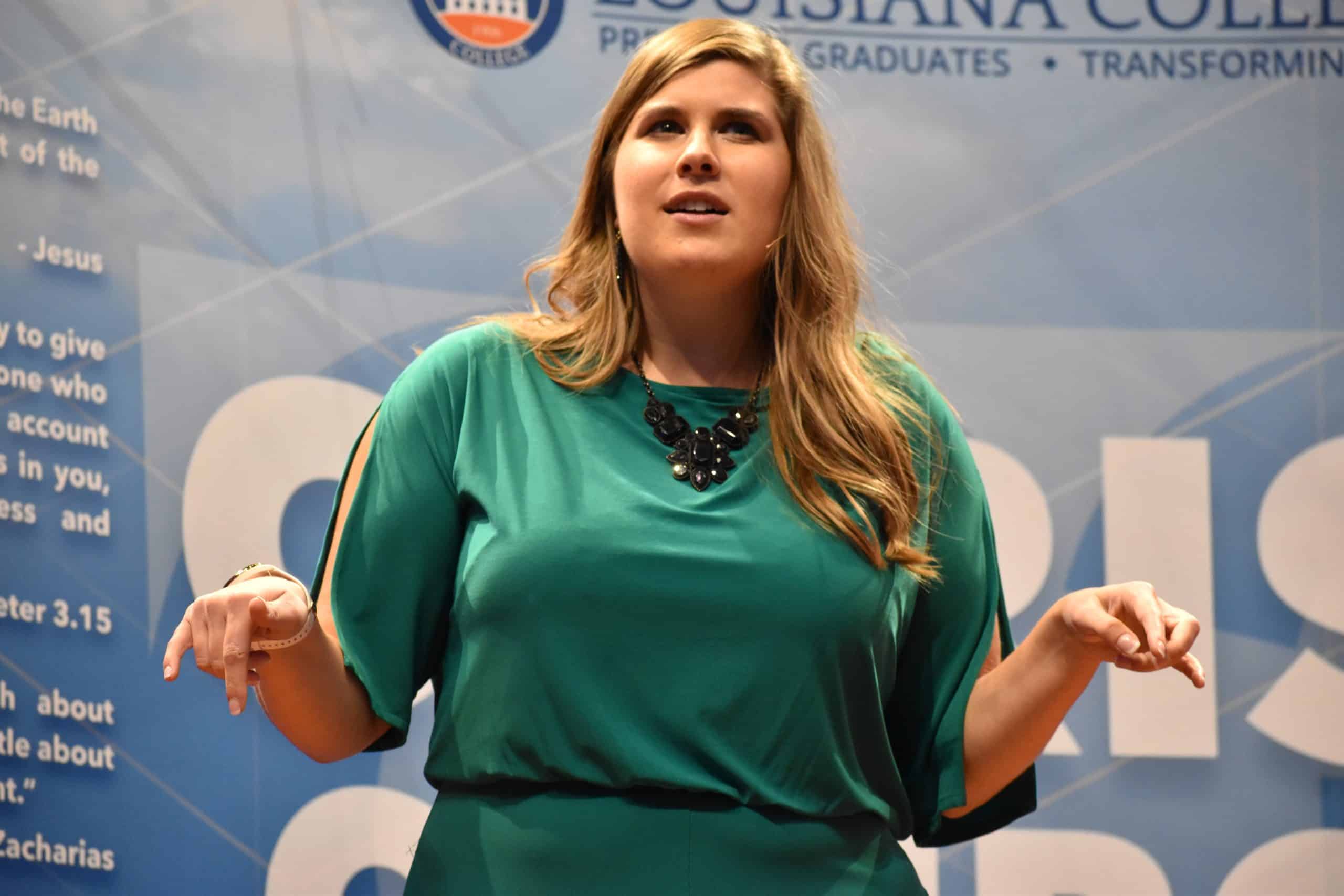By Brian Blackwell, Baptist Message staff writer
PINEVILLE, La. (LBM) – Freedom of religion is a long-held constitutional right, and it is up to the younger generation and others to fight for this important belief through thoughtful and civil engagement, Brittany Jones said during Louisiana College’s Christ Church Culture (C3) event, Oct. 28.
“I encourage you all as you seek to live out your life and go on from Louisiana College to think through ‘How can I meld what I have been taught here and meld my beliefs and my beliefs system but also approach issues with kindness and compassion and to engage our world well?’” Jones told LC students and community members gathered inside Guinn Auditorium.
Jones made a special emphasis to address vaccine mandates by governments and for-profit corporations, and church closure orders during the pandemic.
Jones, director of policy and engagement for Kansas Family Voice, made “The Case of Religious Freedom” at the second C3 event of the fall semester. Jones, an attorney, graduated from Louisiana College in 2014 and earned her law degree from Regent University School of Law. Her focus at Kansas Family Voice primarily is on religious freedom, pro-life, education choice and combatting pornography.
Jones said the Founding Fathers wanted to protect freedom of speech and religion. Even though not all Americans agreed on the same issues, Jones said they wrote the First Amendment so everyone with different ideas could voice their opinions and live peacefully.
“They also believed there was something that bound us together and there was something needed in order to keep all of these diverse viewpoints and these diverse ways of thinking together,” she said. “If you look at some of the farewell address of (President) George Washington and others, they talked about how morality and this shared vision of this commitment to America and this commitment to our country would actually bring us together and would actually allow us to hold diverse but unified beliefs.
“And that’s unfortunately something we’ve lost,” Jones continued. “We’ve lost respect for each other, we’ve lost a commitment to shared morality, we’ve lost a shared commitment to our country. That makes it very, very difficult sometimes for us to approach these topics. But that’s the beauty of freedom of religion. That’s the beauty of freedom of conscious is that it actually gives us space to disagree.
“The freedom of religion means that you have the right to have some belief and have some faith or not faith at all,” she said. “And we want to protect that through the Constitution, through our government, through our systems that we have in our country.”
Jones said in the last 30 years the government has “pushed back” on the principle that freedom of religion was absolute. She noted that since freedom of religion is something given by God, the government can take it away.
“When the government tries to define something that’s God-given and tries to pull it back it doesn’t tend to work because human nature tends to come out,” she said.
Jones referenced two recent examples where religious freedom has come into play since March 2020.
She noted that early on during the COVID-19 pandemic some governors were shutting down churches and medical facilities while allowing casinos and abortion clinics to remain open, which she said did not make sense.
“The Supreme Court very, very clearly said you can’t keep all these other places open and close churches,” she said.
Jones said that while case law allows the government the right to impose some type of vaccine mandate, those mandates typically require an exemption.
“It will be interesting in the next couple of months how this comes down when we do get an actual rule from President Biden and his administration of what his actual (vaccine) mandate might look like,” she said. “It’s an interesting time to be in America because of what COVID has done to this specific question of whether or not we can do these sorts of things in a pandemic.”




